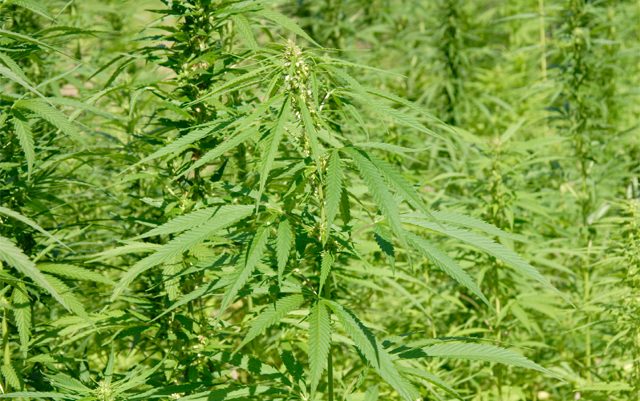No fanfare as South Carolina hemp law is signed

South Carolina Governor Henry McMaster made the final decision of bringing hemp to the state as an agricultural crop by signing House Bill 3559 on May 11, 2017. After being passed unanimously by House members on May 4th, it was obvious that the industrial hemp program could only benefit the state. Like neighboring North Carolina, the terms require that this agricultural commodity be based on research or as a pilot program through a university.
North Carolina has been instrumental in gaining momentum with hemp growing, processing and marketing since passing a similar bill in October 2016. Their confidence has led Hemp Inc. to purchase and relocate the nation’s only large-scale decorticator to Springfield, North Carolina – which will be used for processing hemp into fiber for multiple uses.
While South Carolina’s Department of Agriculture requires limiting 15 permits per year, and test plots not exceeding 20 acres, the gates have been opened for future opportunities. The program in the next year would expand to 50 licenses for 50 acres each. After that, the Agriculture Department and the state’s research universities would determine whether the program would be expanded. With a processing plant (decorticator) nearby in North Carolina, the economical feasibility in growing hemp is huge.
Licenses for this new program will begin immediately and be issued to growers who have passed a State Law Enforcement Division background check. The growers also have to work with an in-state research university to develop products and a market for them. And they must have a contracted buyer for the hemp. Buyers are not seen as a problem since Europe and China prefer hemp for their power plants as opposed to the wood chips and agricultural residue currently used.
South Carolina was once a thriving area for textile mills. However, with the passage of the North American Free Trade Agreement (NAFTA) in 1994, the state’s economic dependence of this commodity was placed in jeopardy. Hemp could be a new form of balance for this community.
State Sen. Danny Verdin (R-Laurens), chairman of the Senate Agriculture and Natural Resources Committee, is hoping to bring back that breath of fresh air that was lost when the textile mills began to dwindle.
“It might just be a niche,” says Verdin. “But I believe there is a demonstrated marketplace globally (with hemp). This very slow and heavy regulated approach will quickly evolve into a valuable industry. Imagine if we could actually make textiles in our textile mills again.”
420 Intel is Your Source for Marijuana News
420 Intel Canada is your leading news source for the Canadian cannabis industry. Get the latest updates on Canadian cannabis stocks and developments on how Canada continues to be a major player in the worldwide recreational and medical cannabis industry.
420 Intel Canada is the Canadian Industry news outlet that will keep you updated on how these Canadian developments in recreational and medical marijuana will impact the country and the world. Our commitment is to bring you the most important cannabis news stories from across Canada every day of the week.
Marijuana industry news is a constant endeavor with new developments each day. For marijuana news across the True North, 420 Intel Canada promises to bring you quality, Canadian, cannabis industry news.
You can get 420 Intel news delivered directly to your inbox by signing up for our daily marijuana news, ensuring you’re always kept up to date on the ever-changing cannabis industry. To stay even better informed about marijuana legalization news follow us on Twitter, Facebook and LinkedIn.




